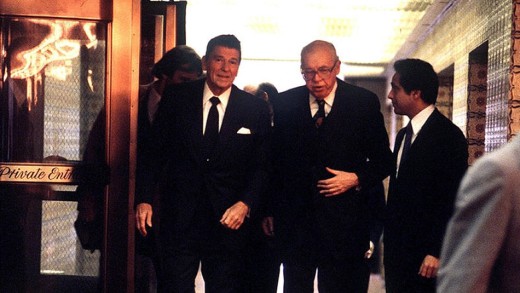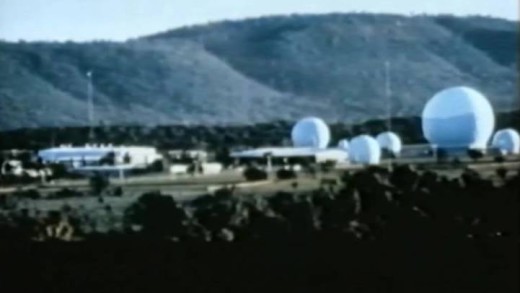In 1978, Australia was shocked by the explosion of a massive bomb placed in a rubbish bin outside the Sydney Hilton Hotel in NSW. The perpetrators were never found. However, evidence that the Australian security and intelligence forces may have been responsible resulted in the NSW State Parliament unanimously calling for an inquiry in 1991 and then again in 1995. The Federal Government vetoed any inquiry. No investigation was held. The government then set-up the Australian Federal Police and increased support for "anti-terrorist measures"...
The Secret Government, as its title suggests, is essentially an investigation into the processes, plans, operations and persons responsible for systemic abuses of power at senior levels of the United States government during the 1980s. The film covers multiple covert operations and secret projects, but takes a particular focus on the Iran–Contra affair of 1986, where Ronald Regan secretly facilitated the illegal sale of arms to Iran—which was the subject of an arms embargo at the time—to support a right-wing terrorist group called "The Contras," and also make obscene profits from the sale of such weapons. Transported to the political happenings of today, The Secret Government is a call to remember history, and see that mass profits from weapons dealing running covert/secret wars were a reality then, and now, as well as to reveal just how far institutionalised propaganda and obfuscation works to conceal these home truths, still generations later.
In 1966, Australia made an agreement with the United States that allowed the establishment of a secret military base satellite tracking station, just south of Alice Springs in the Northern Territory. The facility is called Pine Gap and for more than forty years it has operated in a shroud of secrecy and been the target of much controversy. Home on The Range attempts to contextualise these issues by highlighting the history of the base and its origins, as well as the stories of controversy. Some of these include the Khemlani Affair and the sacking of the Whitlam government in 1975, the Christopher Boyce spy trial, the role of the Central Intelligence Agency and its former agent Victor Marchetti, as well as documenting the post-war culture of government secrecy, sprawling intelligence agencies and foreign affairs and policy. But Home on the Range does more than gesture toward such CIA interventions. It marshals a persuasive array of evidence linking the imminent expiry of leases on United States military and intelligence bases in Australia in 1975, to the CIA and Whitlam's sacking, posing direct questions about the nature of democracy in regions beholden to the United States.


